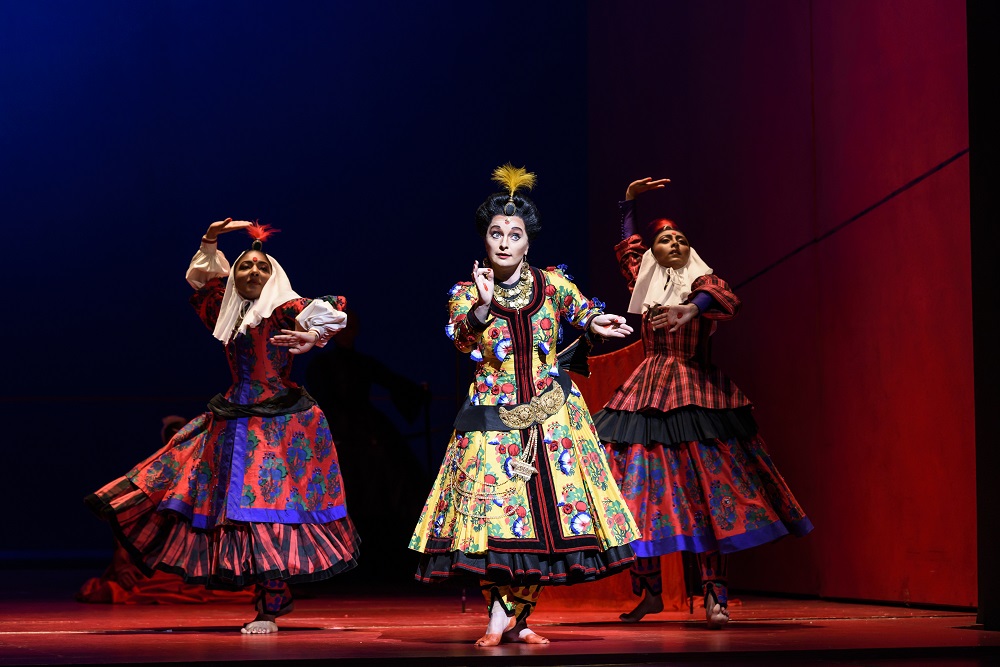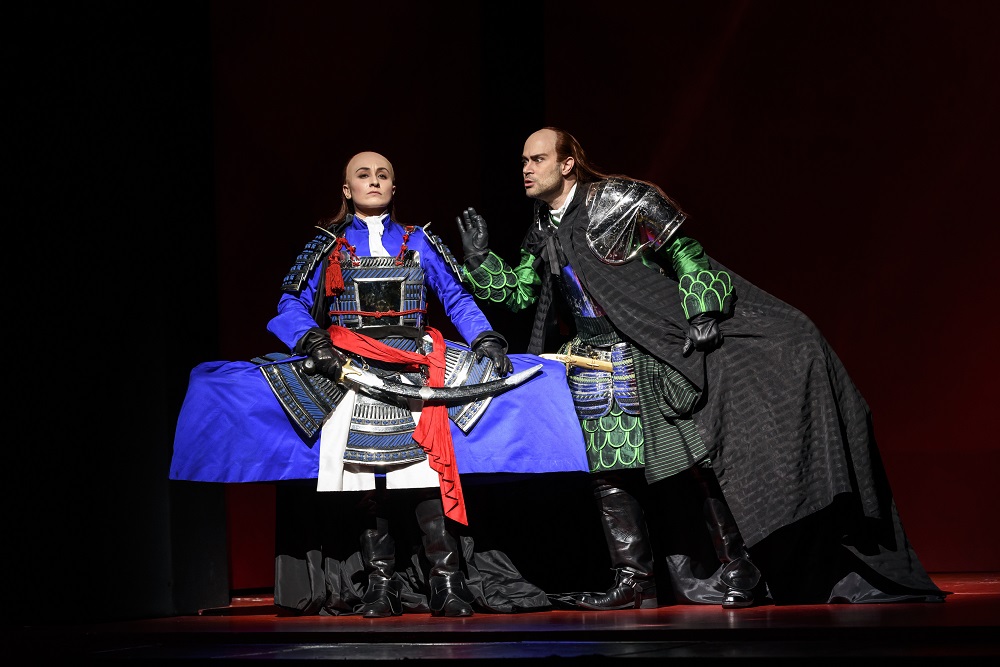Why stage a stiff opera about half-frozen royals by a not-yet-divine Mozartino? The best Mitridate really deserves is one of those intimate concert performances with brilliant young singers at which Ian Page's Classical Opera excels. Yet this is the third revival of a 1991 Royal Opera production by Graham Vick, never among his more probing psychological studies (which in any case the 14-year old Mozart, impressive but no teenage genius here, hardly deserves). The best in show is Paul Brown's colourful if restrictive costuming, and this latest cast looked very promising on paper. The actual results aren’t enough.
Only that effervescent soprano Lucy Crowe (pictured below) is fully stylish. She plays the “other” lady in the flimsy drama, the one who isn’t fought over by King Mitridate and his two sons, Farnace and Sifare (the brother the love-object in question, Aspasia, really loves). And if Crowe’s Ismene seems to get the best music, that may be due to the force of her personality – though I’d wager that her pretty slow minuet at the beginning of the third act is the only aria that comes close to the future Mozart of at-one-with-the-world gracefulness. She also wears the one costume I’d covet and carries out her Indian Kathak dance movements with real charm. 

- Mitridate, Re di Ponto at the Royal Opera until 7 July
- More opera reviews on theartsdesk














Add comment